Carrickfergus
#50 / March 18 Podcast
We might not even know the old Irish folk song “Carrickfergus” were it not for hard-drinking, hell-raising actors Peter O’Toole and Richard Harris and beloved playwright/singer/songwriter Dominic Behan.
O’Toole and Harris discovered their shared love for the song in the 1950s, and Harris added to the sparse lyrics known by his friend. But the song’s renaissance really began when O’Toole introduced it to Behan, who later recorded it under the name “The Kerry Boat Song.” Four years later, in 1964, it was recorded by The Clancy Brothers and Tommy Makem, which carried the song to many an American ear.
Behan, in his 1965 book “Ireland Sings,” gave three verses, two of which he said he got from O'Toole and a third — the middle one — he wrote himself. Speculation is that O'Toole actually misheard or misremembered the original lyrics, which would explain some deep mysteries in the song.
As with many ancient folk songs, the tune’s origins remain as opaque as Irish mist. Some identify it with an 18th-century air, “Do Bhí Bean Uasal” (“There Was a Noblewoman”), while others think it is an amalgamation of songs. Extraordinarily lengthy discussions about the tune’s origins and meaning go on in cyberspace, some of which have lasted for years. One of its mysteries, however, seems to have been solved by one contributor’s detective work.
The song tells of a drunken Irish wanderer pining for the northern coastal town of Carrickfergus and a former sweetheart, but disparities in the lyrics puzzled many. The first verse begins: “I wish I had you in Carrickfergus/ Just for nights in Ballygrant.” The final verse, however, switches to Kilkenny, in distant southern Ireland.
A likely explanation for this discrepancy lay not in Ireland, but Scotland, on the Isle of Islay. The island has a Ballygrant village in Kilmeny parish, where during the 18th and 19th centuries there were lead and silver mines that Irishmen voyaged to work in. Marble was also quarried, which provided Kilmeny churchyard’s black marble headstones.
“Kilmeny” possibly was misinterpreted as “Kilkenny” in times past when songs were passed down verbally. By switching the names, the last verse and its references to black marble and silver make sense. The song might be about an Irish miner who found love in Kilmeny, only for her to die and be buried there, across “the deepest ocean.”
The Kennedy Connection
Many first heard this lovely melody in the summer of 1999 when it was played at the funeral of young John F. Kennedy Jr. The performance was an acknowledgement of the Kennedy family’s long association with Carrickfergus.
In fact, John Jr.’s father, President Kennedy, made the town the first stop on his summer 1963 visit to the family’s homeland. Later, when JFK was slain just five months later, the community — now a city of 28,000 about half an hour from Belfast — remembered its native son by renaming a street in his memory.
Our Take on the Tune
St. Patrick’s Day has always been a special time in the Floodisphere, and when it falls on our regular gathering night, well, the rehearsal turns into a bit of a céilí.
Last night we brought out a number of rollicking tunes from the old sod, but the evening ended on a quieter note, with this meditative old melody. Click here to hear our rendering of “Carrickfergus.”
A Little More?
If you’re still a St. Paddy’s mood, remember we’ve just released our free virtual St. Patrick’s show, featuring a free playlist of tunes that The Flood has recorded over the past dozen years at live shows, jam sessions, rehearsals and parties.


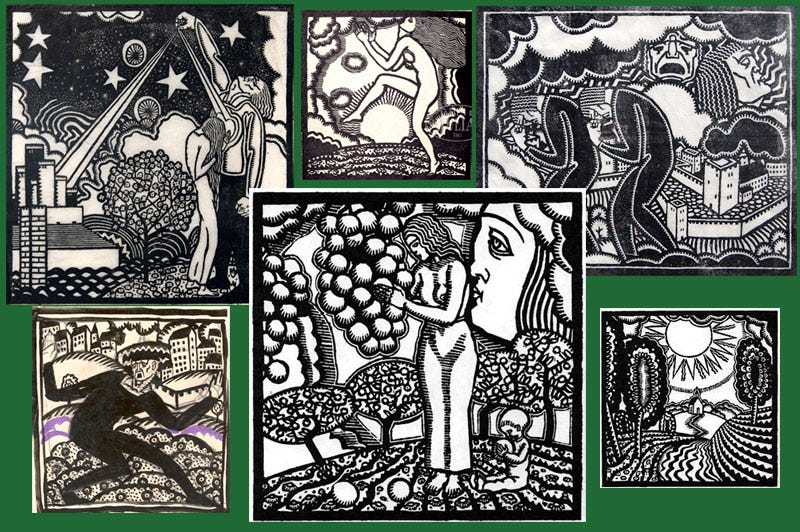
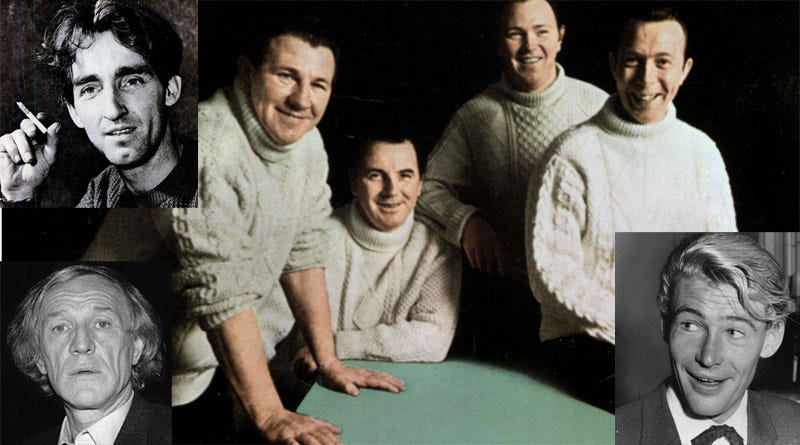
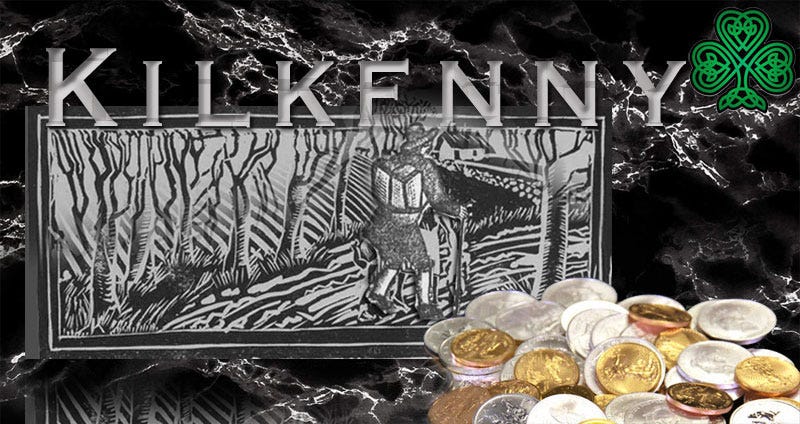
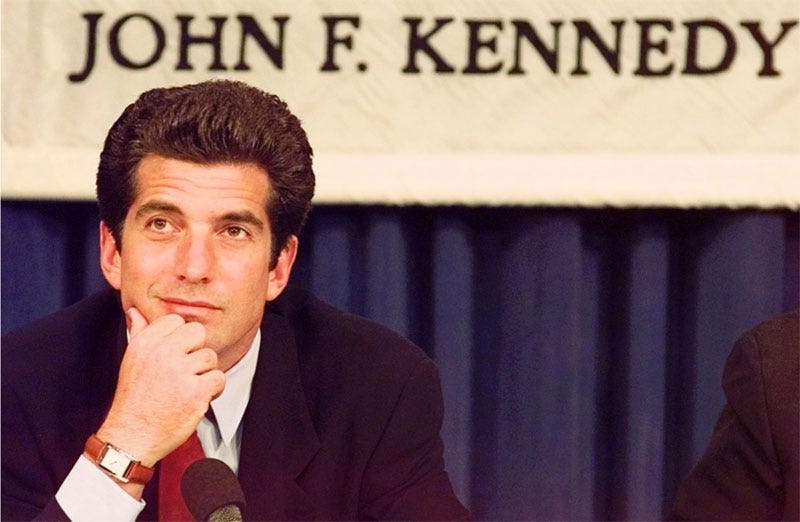
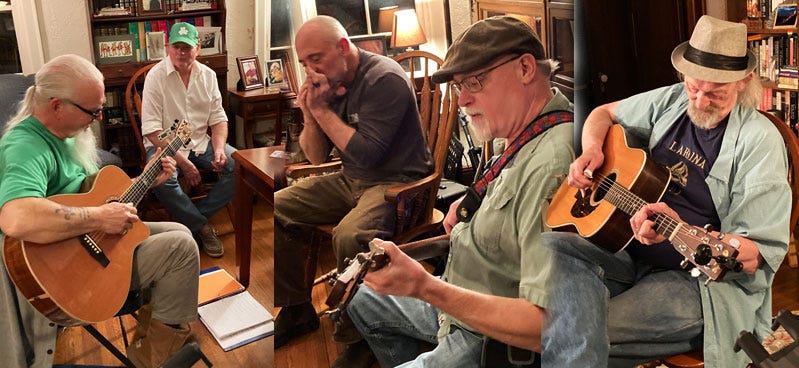
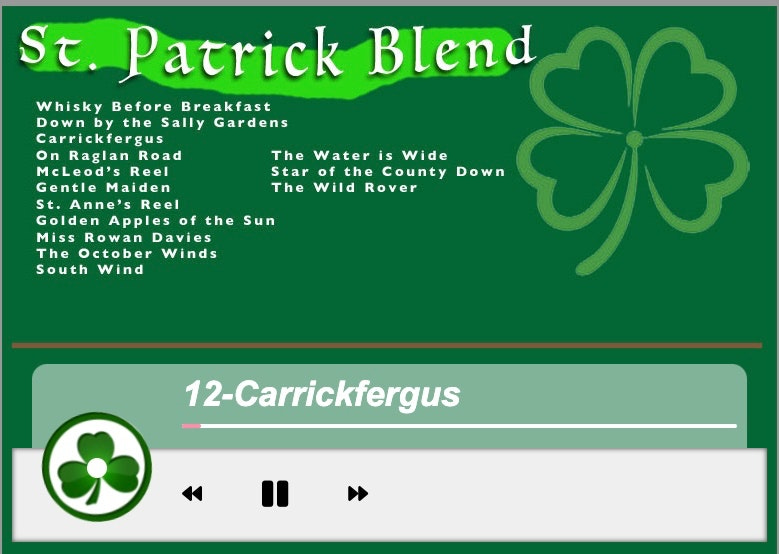
Listening to this (several times) I hear an instrument sounding “autoharp-ish” on breaks. What/who am I hearing?